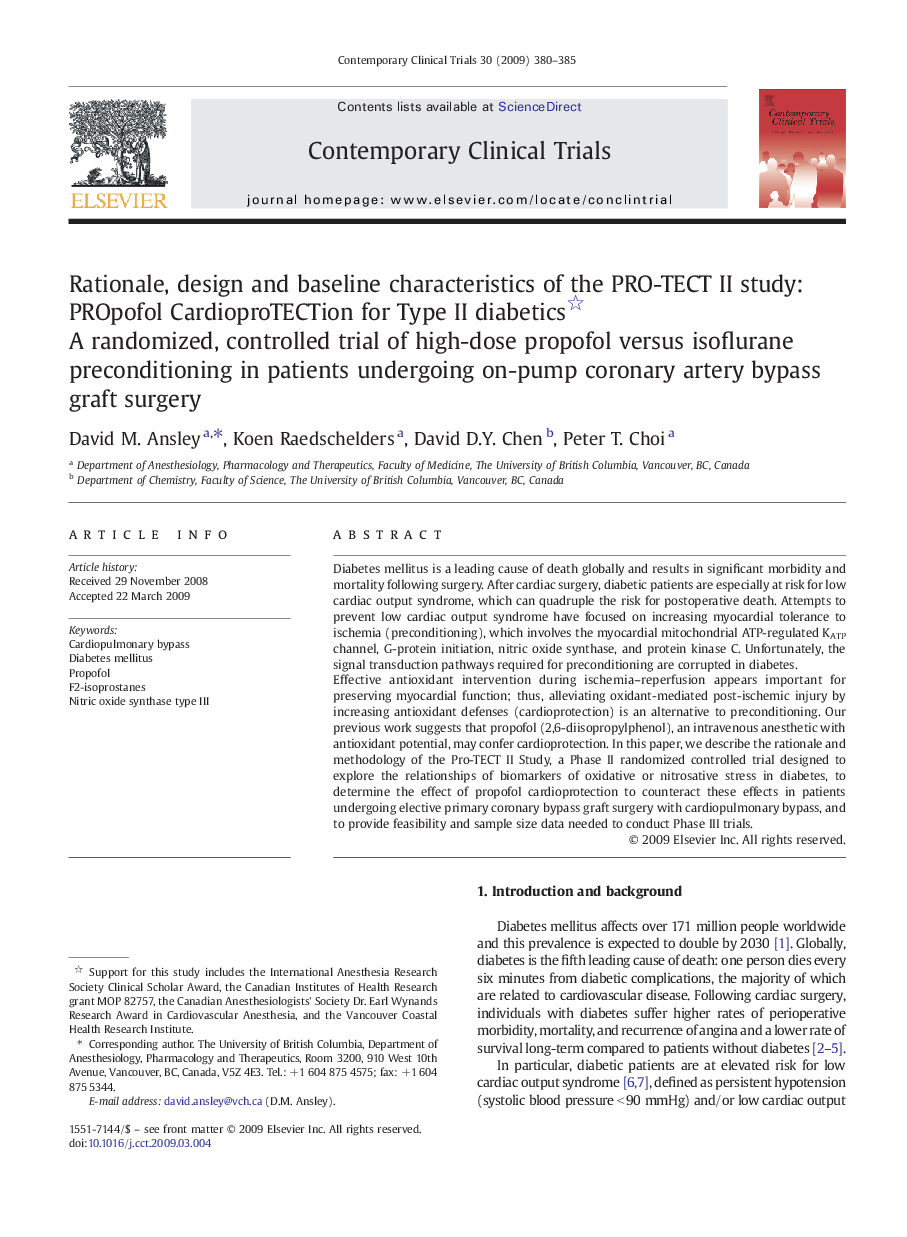| Article ID | Journal | Published Year | Pages | File Type |
|---|---|---|---|---|
| 3463176 | Contemporary Clinical Trials | 2009 | 6 Pages |
Diabetes mellitus is a leading cause of death globally and results in significant morbidity and mortality following surgery. After cardiac surgery, diabetic patients are especially at risk for low cardiac output syndrome, which can quadruple the risk for postoperative death. Attempts to prevent low cardiac output syndrome have focused on increasing myocardial tolerance to ischemia (preconditioning), which involves the myocardial mitochondrial ATP-regulated KATP channel, G-protein initiation, nitric oxide synthase, and protein kinase C. Unfortunately, the signal transduction pathways required for preconditioning are corrupted in diabetes.Effective antioxidant intervention during ischemia–reperfusion appears important for preserving myocardial function; thus, alleviating oxidant-mediated post-ischemic injury by increasing antioxidant defenses (cardioprotection) is an alternative to preconditioning. Our previous work suggests that propofol (2,6-diisopropylphenol), an intravenous anesthetic with antioxidant potential, may confer cardioprotection. In this paper, we describe the rationale and methodology of the Pro-TECT II Study, a Phase II randomized controlled trial designed to explore the relationships of biomarkers of oxidative or nitrosative stress in diabetes, to determine the effect of propofol cardioprotection to counteract these effects in patients undergoing elective primary coronary bypass graft surgery with cardiopulmonary bypass, and to provide feasibility and sample size data needed to conduct Phase III trials.
